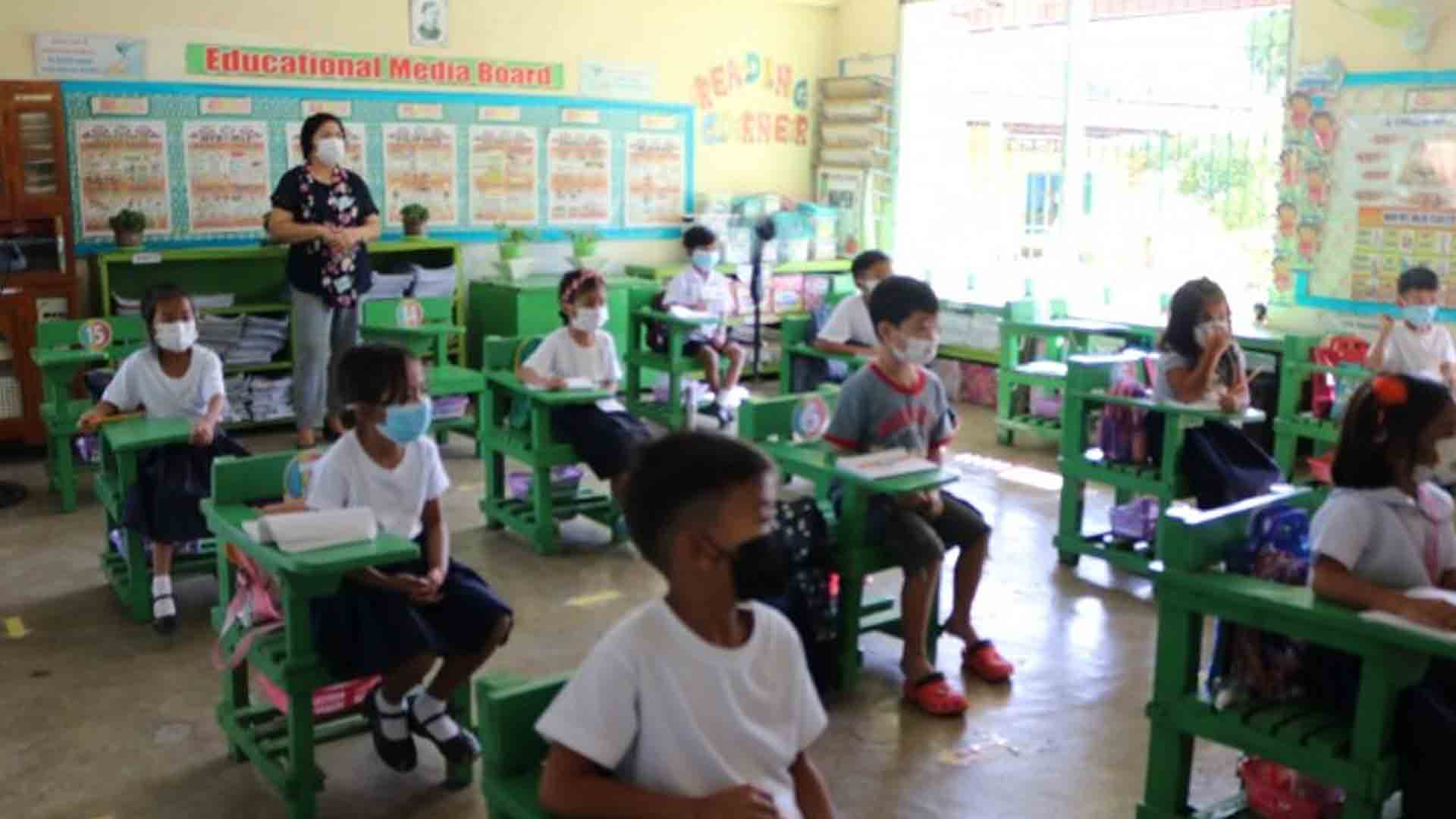Face-to-face classes can resume in full capacity under Alert Level 1, a health official said Wednesday.
In an online media forum, Health Undersecretary Maria Rosario Vergeire emphasized that the resumption of classes is tied with the alert level system per guidelines set by the Inter-Agency Task Force on the Management of Emerging Infectious Diseases.
“At ang sabi kapag tayo ay nasa Alert Level 1, maaari tayong mag (It said under Alert Level 1, we can have) face-to-face [classes], it’s 100 percent or full capacity, Alert Level 2, we only have selected areas,” she said.
Vergeire was reacting to the concerns of parents who want to know if the Department of Health agrees with the resumption of in-person classes.
“So as to the paranoia, especially of our mothers, unang-una po hindi tayo magbubukas [ng klase] kung may nakikitang risk po sa ating mga kabataan kapag sila’y bumalik sa kanilang mga eskwelahan (first of all, we won’t open [classes] if there are risks when they go back to school),” she said.
Since children have been in lockdown for more than two years already, health experts advise that their mental health must be considered.
“This is the time for us to let them go back to school to have their interactions with other people, their classmates and teachers.
Hinding hindi po papayag ang gobyerno na sila po ay magkaroon ng risk kapag sila ay pumasok (The government won’t allow them to have risks if they go to class), Vergeire said.
She also urged parents to have their children vaccinated against Covid-19 — the “best protection” they could have as they attend face-to-face classes.
In the same forum, Department of Health (DOH) Technical Advisory Group member and pediatrician Anna Ong-Lim echoed Vergeire’s statement that the intensity of the country’s response must be connected with the severity of the problem.
“When the pandemic started, our response was focused on the restrictions of community mobility because there is still no understanding, full understanding of the virus, not much intervention to do than to control the mobility of individuals to impose the prevention of transmission,” she said.
She noted that transmission of the coronavirus could be prevented through proper ventilation, wearing of masks, physical distancing, and vaccination.
Crucial
The National Vaccination Operations Center (NVOC) reiterated the crucial contribution of children availing of Covid-19 jabs in the wide resumption of face-to-face classes in the country.
NVOC chairperson, Health Undersecretary Myrna Cabotaje, urged the parents to allow their children to avail of the Covid-19 primary in preparation for the safe and healthy reopening of physical classes amid the prevailing global pandemic.
“Importante iyan, alam na natin na magbabalik na iyong ating face-to-face na klase. So mahalaga sa ating mga kabataan ang protektado with the primary doses (That’s really important, because we know that the face-to-face will now resume, so it is really important that our children are protected with the primary doses),” Cabotaje said in a Laging Handa briefing
Outgoing Education Secretary Leonor Briones has previously announced the government’s plan to conduct a 100 percent reopening of actual classes will depend on the advice of the DOH, preparations of local government units, and consent and participation of parents.
Cabotaje also encouraged vaccinated children aged 12 to 17 years to get their third dose or booster shots.
The DOH has earlier allowed the administration of Covid-19 booster shots to immunocompromised adolescents aged 12 to 17 years old.
The country’s Food and Drug Administration has issued an emergency use authorization of Pfizer BioNTech vaccines as booster doses for adolescents, which can be administered at least 28 days after the second dose of the primary series.
So far, there are almost 9.5 million adolescents and almost 3.3 million children who are now fully vaccinated against the coronavirus disease in the Philippines. (PNA)







